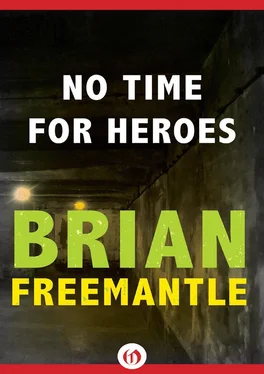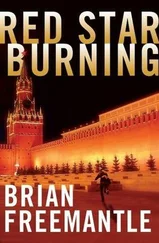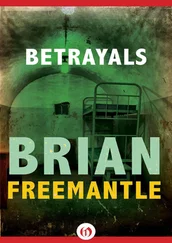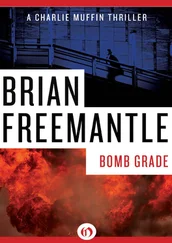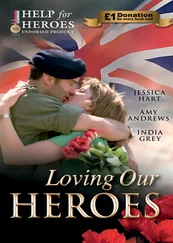Brian Freemantle - No Time for Heroes
Здесь есть возможность читать онлайн «Brian Freemantle - No Time for Heroes» весь текст электронной книги совершенно бесплатно (целиком полную версию без сокращений). В некоторых случаях можно слушать аудио, скачать через торрент в формате fb2 и присутствует краткое содержание. Жанр: Триллер, на английском языке. Описание произведения, (предисловие) а так же отзывы посетителей доступны на портале библиотеки ЛибКат.
- Название:No Time for Heroes
- Автор:
- Жанр:
- Год:неизвестен
- ISBN:нет данных
- Рейтинг книги:5 / 5. Голосов: 1
-
Избранное:Добавить в избранное
- Отзывы:
-
Ваша оценка:
- 100
- 1
- 2
- 3
- 4
- 5
No Time for Heroes: краткое содержание, описание и аннотация
Предлагаем к чтению аннотацию, описание, краткое содержание или предисловие (зависит от того, что написал сам автор книги «No Time for Heroes»). Если вы не нашли необходимую информацию о книге — напишите в комментариях, мы постараемся отыскать её.
No Time for Heroes — читать онлайн бесплатно полную книгу (весь текст) целиком
Ниже представлен текст книги, разбитый по страницам. Система сохранения места последней прочитанной страницы, позволяет с удобством читать онлайн бесплатно книгу «No Time for Heroes», без необходимости каждый раз заново искать на чём Вы остановились. Поставьте закладку, и сможете в любой момент перейти на страницу, на которой закончили чтение.
Интервал:
Закладка:
The lunch was a courteous attempt at diplomatic hospitality by Heinrich Bloch, but it didn’t really work. Raisa was even more the object of curiosity from the American party, which she treated with the same defiance as she had faced down the Russian lawyer. She seemed surprised when two of the Americans expressed sympathy at the death of her husband. Danilov wondered how fully they had been briefed, from all that Cowley had sent back to Washington. Olenev’s English was limited and Danilov frequently had to translate. Once or twice, to amuse herself, Raisa actually contributed. Despite the stilted difficulties, both Danilov and Cowley allowed themselves to relax, Danilov gesturing a silent toast to the Americans: Bloch’s first remark, when they met, was to confirm the presentation of a replacement Founder’s Certificate, naming Arkadi Pavlovich Gusovsky the new controller of the Svahbodniy corporation.
The hand-over formalities were more time consuming than Danilov expected. Bloch didactically insisted upon the procedures being explained in Russian, English and Schweitzer-Deutsch, with each set of lawyers signing documents of understanding. Raisa looked bored when her part in the proceedings came, and bemused when she was handed copies of every document recording her surrender of the anstalt. Olenev obviously approved the preciseness of the ceremony and queried whether he was not the proper recipient of the inoperative replacement certificate; Danilov guessed he might have persisted had not Cowley joined in his own insistence that it was rightfully theirs, as criminal evidence, and nothing to do with the return of the $30,000,000 to the current Russian government.
It was too late by the time they left Bloch’s office for Danilov to buy the intended gifts for Olga, but shops were still open at the airport. He left Raisa Serova in the charge of Cowley and the lawyer and bought a beige skirt and matching shoes, using the measurements he had copied from clothes in her closet before leaving Moscow. He didn’t have sufficient money left for the blouse to complete the outfit.
It was past nine before they got back to Moscow and Danilov was able to try the Kutbysevskij number, but Gusovsky was there.
‘We need to talk,’ announced Danilov.
When he got home to Kirovskaya, Olga said she would have preferred the skirt in a darker colour and she wished he had bought a blouse to finish it all off.
CHAPTER SIXTY-THREE
Gusovsky’s house on Kutbysevskij Prospekt was very large, close to being a mansion; there were similarities between it and the surveillance photographs of the Ostankino leader’s home. Both were cordoned behind high stone walls, with huge metal gates closing off the protective grounds, and outside each were fleets of cars: the Chechen appeared to prefer BMWs, which explained Kosov’s choice. Danilov thought the Volga looked insignificant and shabby, parked at the end of the convoy, but for once, he guessed, his wipers and wing mirrors would be safe.
He had to announce himself at a control panel set into one of the gate pillars, and a man who had watched his Metropole meeting with Kosov came to the gate to confirm his identity before it clicked open on an electronic release. As it snapped shut behind him, Danilov felt the dip of genuine fear. At that moment he thought Cowley had been right, all along: that they’d had sufficient to counter the Chechen threats and the evidence they’d retrieved from Switzerland was unnecessary. Cowley’s most forceful argument – ending in a shouting tirade – had been against this personal confrontation: they’d parted at Petrovka an hour earlier with the American yelling red-faced it was ridiculous, absurd, a macho affectation to impress no-one but himself and that he’d come to believe his own heroic publicity. Danilov certainly didn’t feel heroic now. He felt frightened, weaklegged and sweating, and if the gate hadn’t been barred behind him and at least eight guards watching in front he would have turned back: maybe even run.
The man who’d checked him at the gate said something Danilov didn’t hear. Danilov just nodded back, following across a wide gravelled forecourt which divided the two halves of the garden. In the middle of the forecourt was a cherubed fountain from which no water spouted. There were three more BMWs to the left, with men around each: two were vaguely polishing the vehicles but others either sat inside or lounged against the bonnets and boots. They all watched him: someone must have made a remark, because abruptly the two on the closest car laughed. Danilov was surprised no-one attempted to search his briefcase. I’m a trusted, bought policeman, he thought.
The house was pre-revolutionary, and the baroque and rococo of the period had been intricately restored in the carved woodwork and the ornate plaster cupolas of the high ceilings. The hallway was marble-floored and escorting the full climb of a huge, encircling staircase was a flight of cherubs from the same flock as those on the fountain outside, sculpted here from the solid stone walls. Heavy brocade tapestries which couldn’t have been genuine but which appeared old hung from other sections of the walls.
Arkadi Gusovsky and Aleksandr Yerin were waiting for him in a wood-panelled study on the far side of the hallway. Like everything else about the house, the room was enormous, two walls dominated by bookshelves, another hung with more tapestry. There was a wide, leather-inlaid desk in front of leaded windows, but Gusovsky was in a deep leather armchair to one side of a stone fireplace big enough for a man to have stood upright beneath the mantel. Most of the other chairs and couches were also leather, but Yerin sat on a more upright, brocaded chair. For the first time the man’s disability was covered by shaded glasses.
Gusovsky rose at Danilov’s entry, going towards a regiment of bottles on a side table, asking what Danilov wanted as he walked. He looked fully at the investigator for the first time when Danilov said he didn’t want anything, the cadaverous smile uncertain. It was Yerin, a man who used his ears for the eyes he did not have, who cocked his head to one side and said: ‘You’re by yourself. Where’s the American?’
‘This only needed me,’ said Danilov. He hoped the perspiration wasn’t obvious on his face. He could feel it wet on his back.
Gusovsky came away from the liquor table without pouring anything. ‘There is a problem?’
‘Not now,’ said Danilov. He went further into the room, towards the two men. All the convenient seats and couches were low: having listened to everything Cowley had ever said about psychology, Danilov decided it would be better if he remained standing.
‘What is it?’ demanded Yerin.
‘I am going to reach an agreement with you, but nothing like you imagined,’ announced Danilov. ‘I’m not taking any payment from you, now or in the future. Nor coming on your payroll. Ever. Neither is Cowley.’
Gusovsky didn’t sit either, but came up to stand behind his partner’s chair: there was the slightest turn when Yerin realised the presence behind him. Yerin, the quicker thinker, said: ‘What has happened to the money in Switzerland?’
‘It has all been returned to its rightful owner, the Russian government. You haven’t got it. I never intended you should.’
Gusovsky felt forward, lightly touching Yerin’s shoulder. Silence filled the room. Coldness, too, although sweat still glued Danilov’s shirt to his back.
Gusovsky said: ‘Oh, you silly man. You very silly little man.’
‘Maybe,’ agreed Danilov, finding the calmness difficult. ‘It was an enormous temptation: we even talked about it.’
‘Do you know what’s going to happen to you?’ said Gusovsky. He sounded very calm, too, his normally resonant voice soft, as if he were savouring something.
Читать дальшеИнтервал:
Закладка:
Похожие книги на «No Time for Heroes»
Представляем Вашему вниманию похожие книги на «No Time for Heroes» списком для выбора. Мы отобрали схожую по названию и смыслу литературу в надежде предоставить читателям больше вариантов отыскать новые, интересные, ещё непрочитанные произведения.
Обсуждение, отзывы о книге «No Time for Heroes» и просто собственные мнения читателей. Оставьте ваши комментарии, напишите, что Вы думаете о произведении, его смысле или главных героях. Укажите что конкретно понравилось, а что нет, и почему Вы так считаете.
